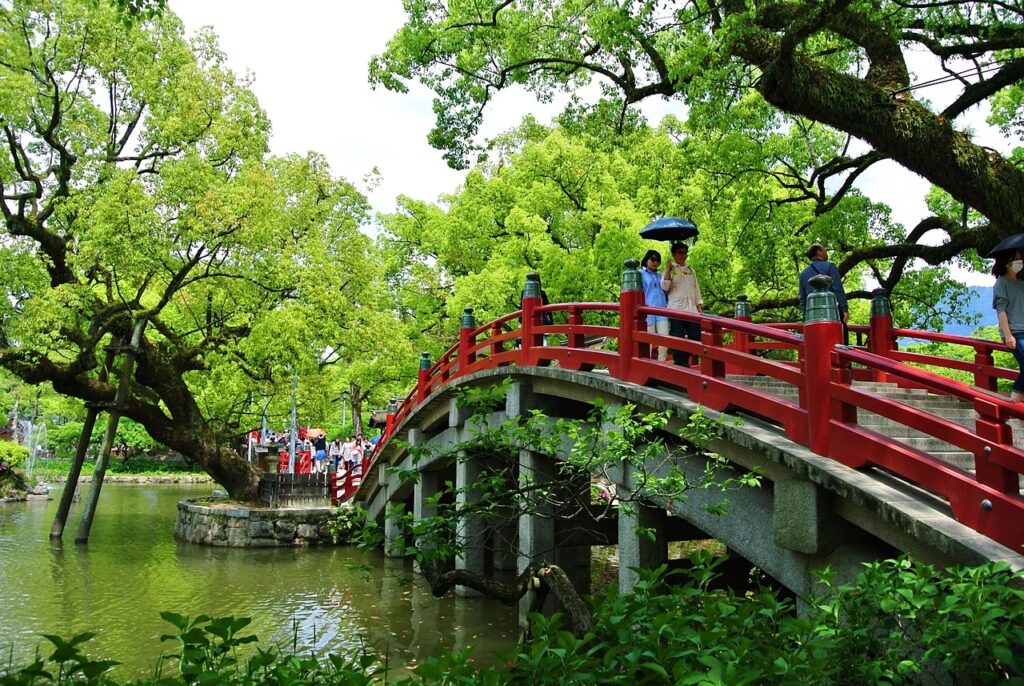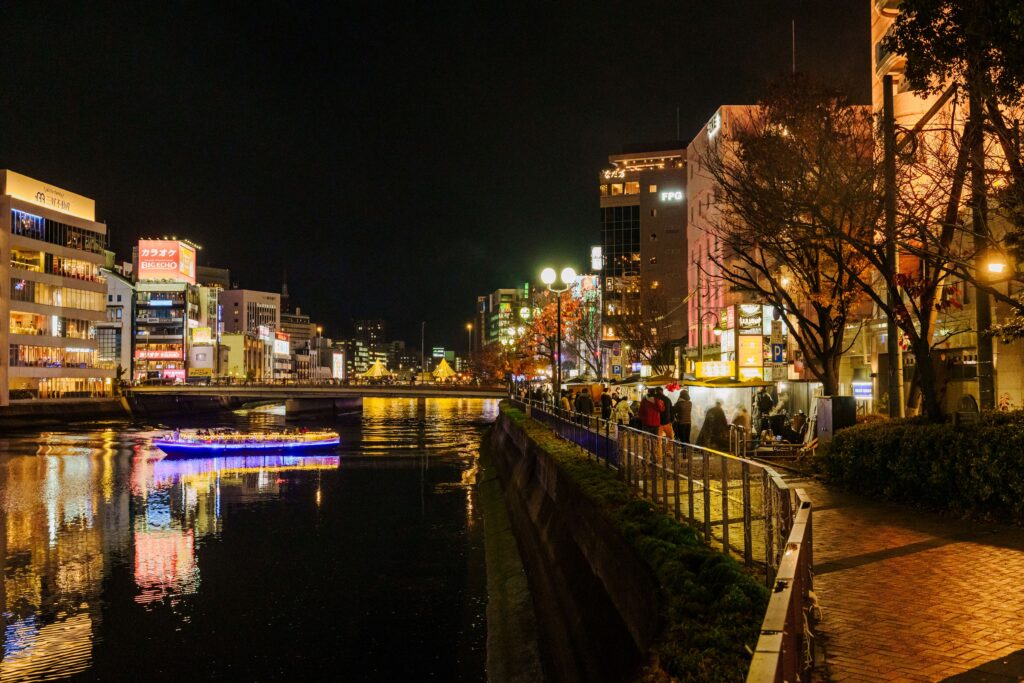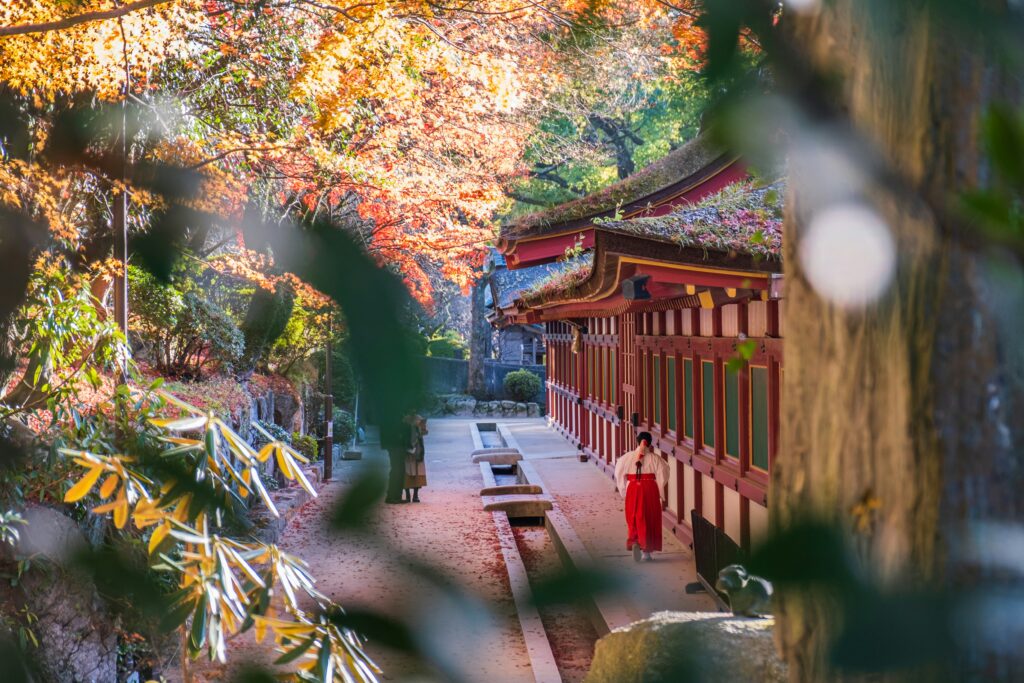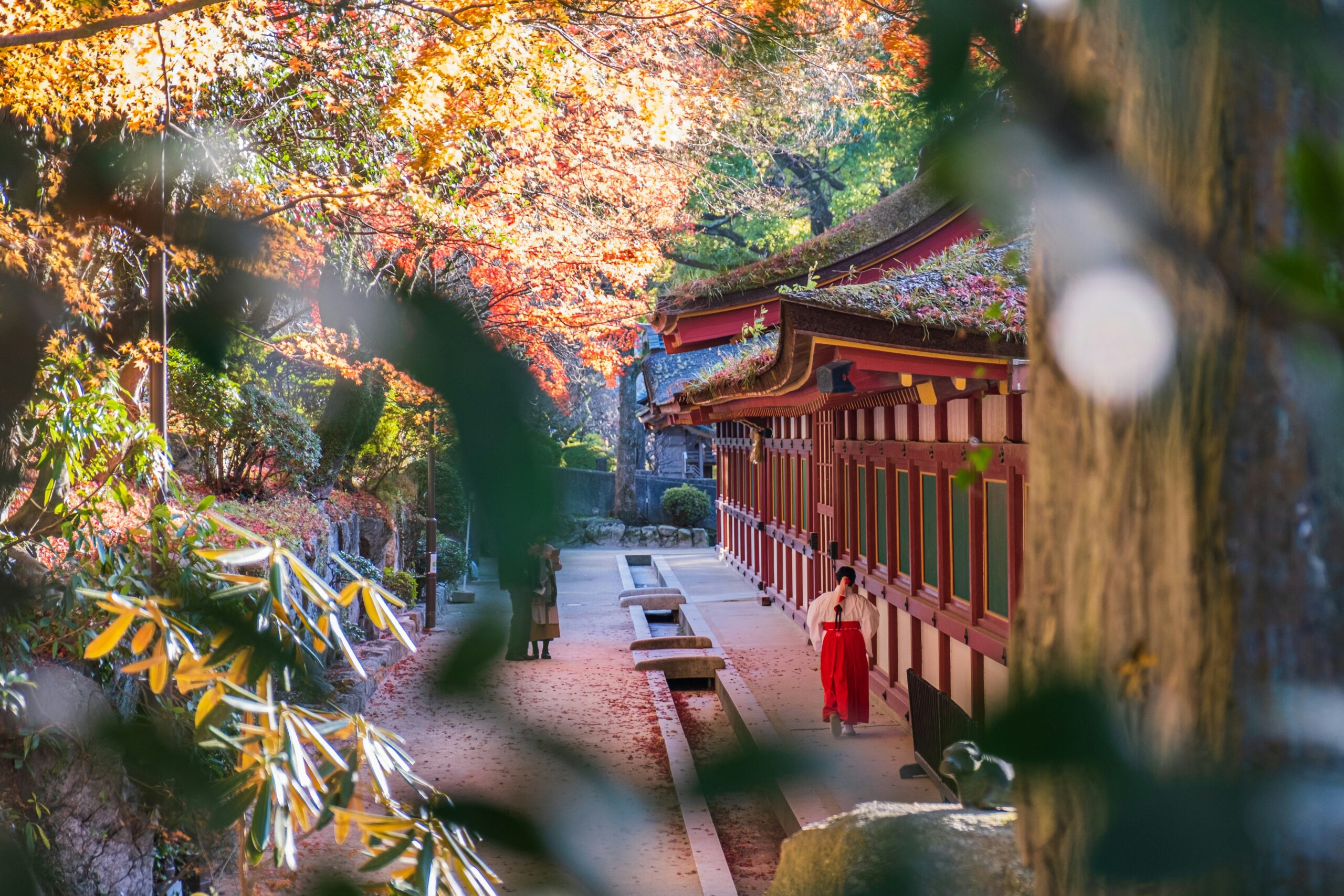As I stepped off the small local train after transferring from Fukuoka Airport, I was immediately struck by a shift in the air. The breeze carried a hint of moisture, and within it, the quiet signal of autumn. I had arrived in Dazaifu—a small inland town in Fukuoka Prefecture—drawn here by a desire to visit a shrine called Dazaifu Tenmangū.
“A Japanese shrine?”
When a friend first recommended it to me, I wasn’t particularly intrigued. But he insisted, “Someone as busy as you should go there.” For some reason, those words lingered.
From the station, I walked down the stone-paved approach to the shrine. Shops selling souvenirs and traditional sweets lined the path, their red lanterns swaying gently in the autumn breeze. Drawn by a toasty, sweet aroma, I stopped in front of a small food stall.

“Plum… rice cakes?” I murmured, puzzled.
An elderly woman behind the counter smiled and handed one to me.
“Oh no, there aren’t actually any plums inside. This is umegae mochi,” she said kindly. “It’s named after an old tale. Long ago, when a noble named Michizane Sugawara was exiled here, a local elderly woman offered him a rice cake, placing it on a plum branch.”

The lightly grilled mochi was filled with gently sweetened red bean paste. Crispy on the outside, chewy on the inside. As I took a bite, the warmth of the azuki beans and the subtle sweetness sank deep into me. In this simple confection, I sensed something like a quiet prayer.
Dazaifu Tenmangū enshrines Michizane Sugawara, a Heian-era scholar and statesman revered in Japan as the god of learning. Over a thousand years ago, he was wrongfully accused and exiled from Kyoto. In time, people began to worship him as a deity.

As I passed through the torii gate, my posture straightened instinctively. A vivid vermilion bridge arched over a pond scattered with fallen maple leaves. Though the shrine grounds were filled with visitors of all ages, there was a strange hush, as if the sacred and the everyday coexisted in quiet harmony.

Standing before the main hall, I brought my hands together and prayed. I wasn’t sure what to wish for, so I whispered inwardly, “Give me the courage to pause.”
Just then, I heard laughter beside me. A young brother and sister were shouting to the gods: “Help us get good grades on our tests!” I couldn’t help but smile and turned to look.
Beside them stood a couple around my age. The man wore a navy cardigan and glasses, the woman a soft pink scarf. Their faces were calm, quietly composed. When our eyes met, they spoke.
“Are you visiting?”
“Yes, from Tokyo,” I replied. “But I still don’t know Japan very well.”
That simple answer led to an easy conversation. The husband turned out to be a local middle school teacher; the wife ran a nearby café. “Do you know the story of Michizane?” he asked. I shook my head.
“He was too honest for the political world,” the man explained, his eyes filled with both respect and empathy.
“But even after being exiled here, he never gave up on learning. Maybe that spirit is what continues to draw people to him.”
I listened quietly. There was a strength in how they spoke—a quiet resilience, like people who lived with care and carried something within them.

As their children began to grow restless, the couple waved and said, “Perhaps we’ll meet again somewhere,” then disappeared into the crowd. I watched them go, struck by their presence. They weren’t in a rush. They carried with them a peaceful, steady rhythm—something unshakable.

Near sunset, on my way back to the station, I stopped by a small izakaya and ordered motsunabe, a local specialty I’d heard about. At first glance, it looked unassuming. But one bite, and my eyes widened. The rich soy-based broth, laced with garlic and chili, was filled with tender beef tripe, cabbage, and chives. Steam rose from the pot, and for a moment, I forgot I was far from home.

Glancing to the side, I saw an elderly couple quietly sharing their own hot pot. They barely spoke, yet a rich sense of time flowed between them.
On this trip, I didn’t just encounter tourist sites or famous dishes. I met people who live with sincerity, who face life with quiet resolve—and above all, who possess the courage not to rush.
Perhaps life needs these pauses. Time to breathe deeply.
The few hours I spent in Dazaifu gently, yet unmistakably, left their mark on me.

As the train carried me away, red-tinged mountains slipping into the distance, I found myself thinking of that couple’s smile.
I had gone there to offer a wish.
But what I truly received was something else entirely—
The realization that some things can only be seen when you allow yourself to stop.
Something New Travel
Some photos courtesy of Fukuoka Prefecture Tourism Federation

